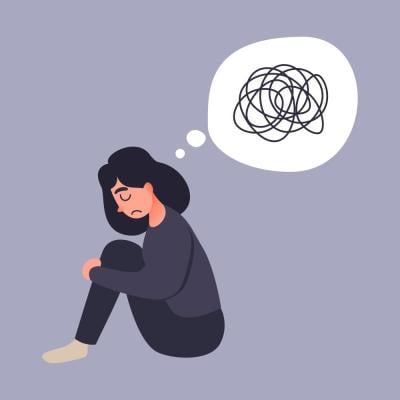Is Your Child Struggling with Anxiety or OCD? Key Ingredients to Help Your Child Succeed
Is Your Child Struggling with Anxiety or OCD? Key Ingredients to Help Your Child Succeed

When anxiety disrupts a child’s everyday life, the first thing most parents focus on is finding a good therapist for their child or teen to work with. Once parents secure that coveted afternoon slot with an anxiety specialist, they breathe a huge sigh of relief:
“Phew! Ok, now my child will learn the tools they need to cope with anxiety – and hopefully things will get back to normal soon!”
But what many parents don’t realize is that while their child or teen is doing important work in therapy – there’s so much that the parent can do THEMSELVES – that will have a huge positive impact on their child’s ability to cope with anxiety. And I’m not just talking about being a generally warm and involved parent (which of course is important!). I’m referring to specific parenting skills that research shows will lead to significant improvement in their child’s anxiety symptoms.
CBT Therapy for Kids + A New Parent-Focused Treatment
Through some googling or consultation with a pediatrician (or other trusted professional), many parents learn about Cognitive Behavioral Therapy (CBT) and Exposure and Response Prevention (ERP). Lots of past research shows that CBT and ERP tools can help reduce children’s anxiety and OCD symptoms.
AND, new research shows that when parents learn specific skills about how to respond to their child’s anxiety – this can also lead to a significant improvement in children’s anxiety symptoms. This parent-focused therapy for childhood anxiety and OCD is called the SPACE treatment program (Supportive Parenting for Anxious Childhood Emotions), which was developed by psychologist, Dr. Eli Lebowitz, at Yale University.
Rather than exclusively focusing on your child learning new skills, I encourage parents to also take a close look at what changes they can make to help their child cope with anxiety. After all, your child’s therapist is usually seeing your child about 1 hour per week, whereas you’re with your child for many more hours each week.
When parents hear about focusing on changes they can make, this sometimes leads to feelings of guilt or shame. As parents learn that they play an important role in helping their child cope with anxiety, some begin to wonder: Did I cause my child to feel so anxious? Is it my fault that they’re struggling? I should’ve known better and done things differently.
If feelings of guilt come up in the beginning of working on your approach as a parent, keep in mind two things:
- The “usual parenting skills” would’ve likely worked fine for a child who does not struggle with clinical anxiety. But just like we don’t expect parents to naturally have the skills to help a child who’s struggling with diabetes for example (of course you’d go see a doctor!) – we should not put pressure on ourselves as parents to naturally know the skills needed to help children who are struggling with anxiety and OCD.
- Staying stuck in these feelings of guilt can hold parents back from making meaningful changes that will help their child. Work through these feelings with a trusted friend or discuss it with a therapist.
What Exactly is SPACE Therapy?
The most important thing to understand about SPACE Therapy is that the focus is on how parents can change their responses and their home environment. And it is via these changes that children begin to show significant improvement in their anxiety and OCD symptoms.
So when parents inevitably ask, but how do I make my child ___ ? The simple answer is – we’re not making your child do anything. Instead, we’re setting things up in a precise way and developing planned responses so that children are likely to make good choices that help them gradually face their fears. Let’s break down one of the SPACE skills into actionable items that can help you and your child.
Responding to Reassurance Seeking
When children worry, it’s normal for them to seek information from their loved ones. For many kids a simple, heartfelt reassurance (e.g., “You’ll be okay”) will bring relief and calm. But for children who struggle with a great deal of anxiety, they might repeatedly ask many questions:
- Are you sure about.. ?
- How do you know that?
- But what if (something goes wrong)?
- Can you check on that again?
Depending on the specific worry, the nature of the questions will differ, but therapists have a specific term for these kinds of questions: Reassurance Seeking. These questions differ from regular questions in a few ways:
- One question leads to another (and another)
- When you try to provide reassurance, it never seems to be quite enough
- Instead of taking in the new information to help them feel calm, you’ll often see an initial increase of anxiety during the questions
The pattern that develops over time is that children rely more and more on responses to their reassurance seeking questions. The child likely feels some short-term relief, but over time this pattern stifles children’s self-confidence and leads to more anxiety. Parents understandably are left feeling depleted and confused (I was trying to help, but I’m not sure that I actually did?).
Instead of giving in to the tempting response of providing excessive reassurance, parents can do two things to help their children more effectively cope with anxiety:
Convey validation and acceptance. In a genuine way, let your child know that you understand that this situation makes them nervous – and feeling so worried is hard! In your own words, let them know you get how tough that is.
The value in starting with this validation piece cannot be underestimated. It helps your child understand that you are both on the same team. It also helps your child be a bit more open to your suggestions about coping. If parents skip this step, they’re much more likely to be met with resistance because a child will feel that they need to convince their parent of just how hard this situation is.
Convey confidence in your child’s ability to cope with uncertainty. Let your child know that it’s hard to not know all of the details about how exactly things will play out. And clearly communicate that you believe they can handle this.
This second piece can be tricky because in the moment your child will probably feel frustrated. But over the long run, your child will learn that they can handle not knowing every detail of the upcoming situation. They will learn an invaluable skill to help them cope with anxiety: tolerating uncertainty. Finding your own words is important, but here’s one way that you could talk to your child about handling uncertainty:
Here’s what we know (brief response to their question). And there are some things we don’t know for sure. I know you can handle this, no matter how it goes! You’re so brave and I am here to cheer you on.
If you’ve usually provided excessive reassurance in the past, it’s helpful to sit down during a calm time with your child to prepare them for the upcoming changes in your responses. Let them know that when they ask you a bunch of questions when they’re feeling worried – you’ve noticed that your answers aren’t actually all that helpful. So you’re going to try something different because you want to help them get better at coping with anxiety over the long run. Provide more details as needed, but this is a nice start to help your child understand that your responses are changing.
Another important skill that parents of anxious children will learn in SPACE therapy is identifying and reducing accommodations. Parent accommodations are well-intentioned responses to help children feel less upset when they’re anxious, but they inadvertently often lead to higher levels of anxiety over the long run. We’ll dive more into accommodations in a future blog post – stay tuned!
Many parents find themselves feeling frustrated, sad or confused when their child or teen struggles with anxiety. Although it’s tempting to exclusively focus on the skills our children need to learn, take heart in the fact that there are many things that you as the parent can do to help your child more effectively cope with anxiety. You can start by asking yourself:
- Does my child ask me questions repeatedly when they’re anxious?
- How do my responses help my child cope in the moment and over the long run?
- What can I say to my child to convey validation?
- How can I convey confidence in my child’s ability to cope?
Here are some great places to learn more about SPACE (Supportive Parenting for Anxious Childhood Emotions) Therapy:
- Book for parents, written by the developer of SPACE: Dr. Eli Lebowitz
- A documentary about SPACE treatment
- SPACE-trained Therapist Directory


















